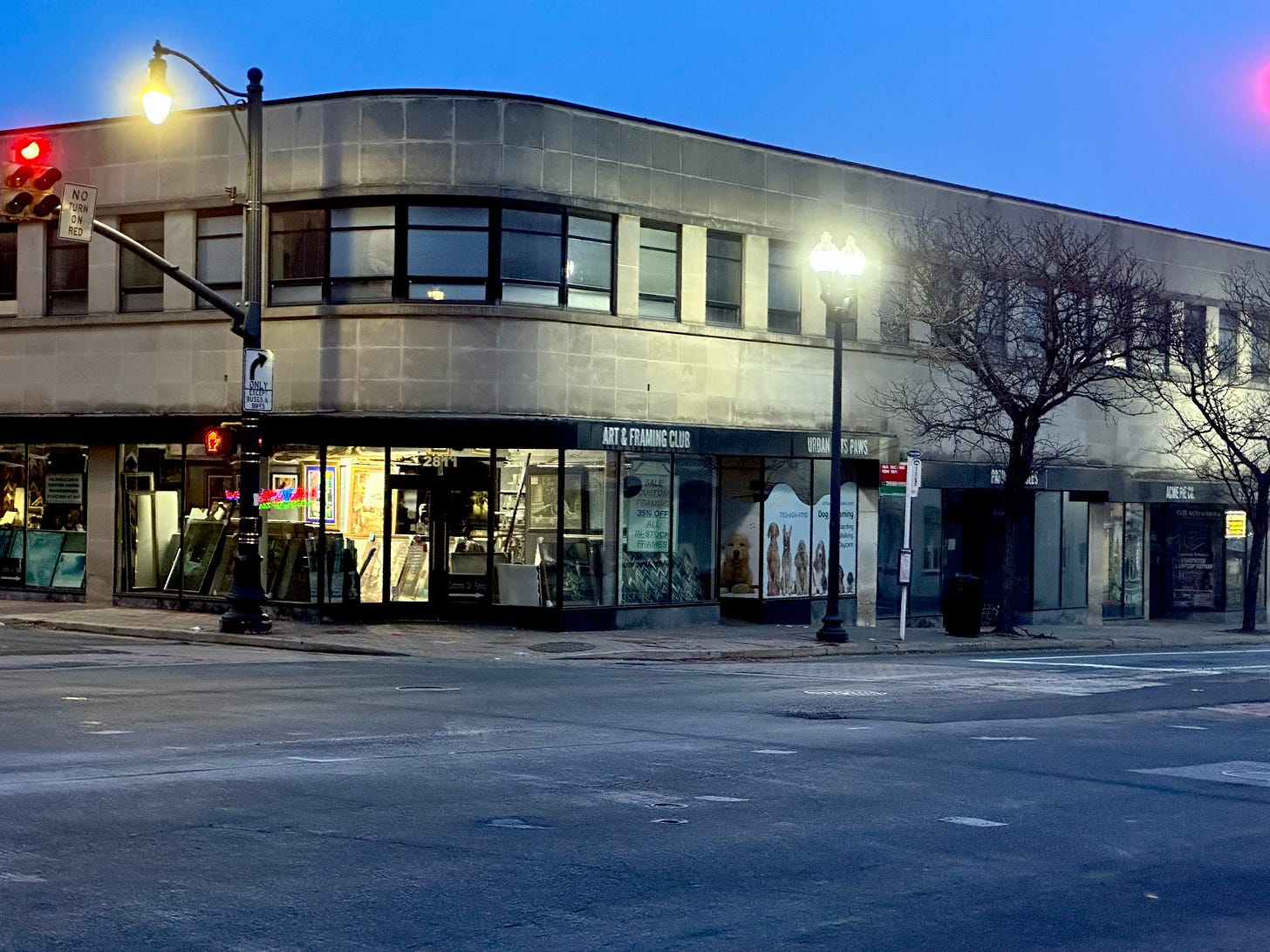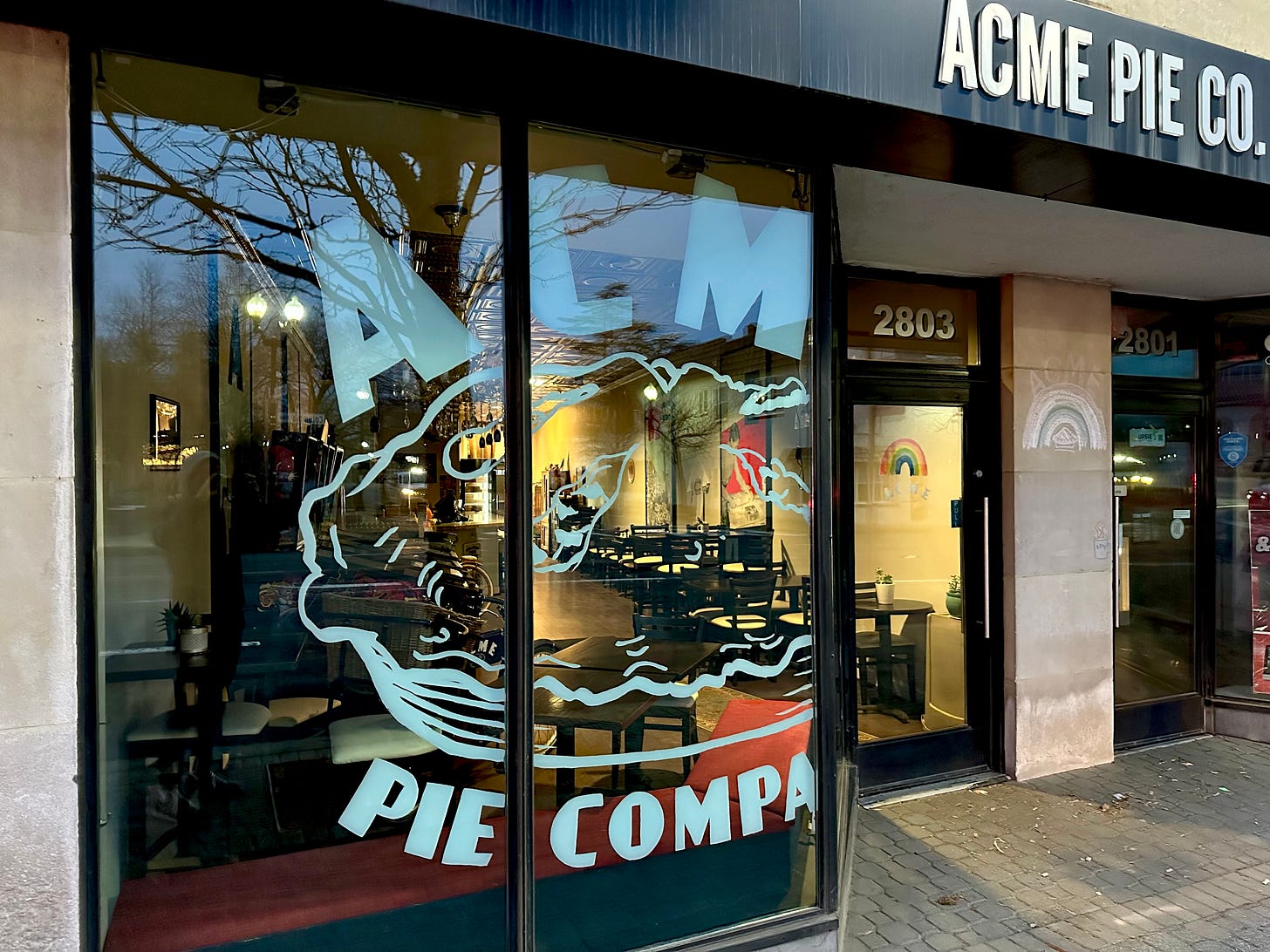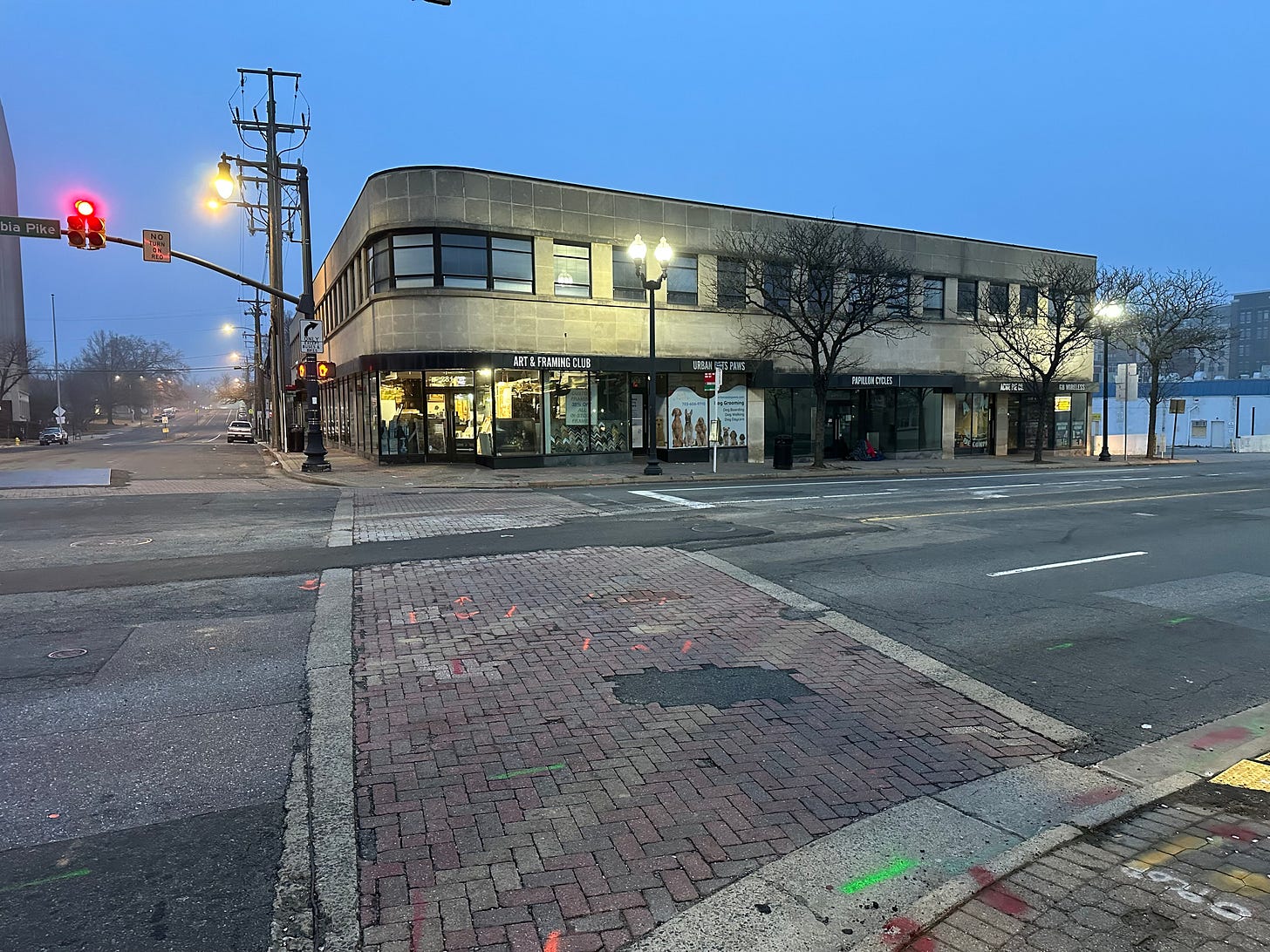Columbia Pike & Walter Reed
A Public Spaces blog post inspired by Thomas Merton and Acme Pie
I didn’t order the pie on time, so we headed to Acme Pie Co. the night before Thanksgiving on the off chance that they would have extra pies for sale. Acme’s website said when to come, but it also said that they couldn’t promise anything.
We got to their shop on Columbia Pike 30 minute early, and something like 25 people were already in line ahead of us. The temperature was dropping, the wind was picking up, so we huddled against the glass storefronts of the dark picture frame shop, the dark pet place, and the dark bike repair shop next to Acme. Acme was dark, too.
People pulled their hats down and their coat collars up. Still, I could hear many of them speaking to companions or to cellphones, and I made out Spanish, some English, a little French, and a language, maybe two, that I didn’t recognize.
I wondered who among us, like me, had never gotten around to ordering, and who purchases pies this way every year. I should have known from the crowd’s complacency and laughter that, despite Acme’s disclaimer and dark interior, its employees and owner would come from its basement ovens with something for everyone. When the lights came on and the doors opened, the evening felt like the matching holiday bookend to Boxing Day.
True confession: living on Columbia Pike, I’ve never felt less white. Or, rather, I feel simply white to others’ Black or brown, Asian or Native American. The bitter history isn’t gone or forgotten. Rather, it’s like we understand it, or understand how little we understand it, and we understand that the rest of us are mostly, at least, trying to understand it. I’m Anglo Saxon, I’m pretty sure, and a member of one of over a hundred nationalities on the Pike. Though the county, the state, and the nation are predominately white, Columbia Pike itself has no dominant culture. I won’t minimize the inequities of the greater dominant culture and their reach inside the Columbia Pike community. But I’m beginning to encounter what makes many people want to live here and contribute to its common life.
I fit in, and that feels good. And that night, at the corner of Columbia Pike and Walter Reed, I was having a milder, political version of Thomas Merton’s famous realization at the corner of Louisville’s Fourth and Walnut:
. . . I was suddenly overwhelmed with the realization that I loved all those people, that they were mine and I theirs, that we could not be alien to one another even though we were total strangers. It was like waking up from a dream of separateness, of spurious self-isolation in a special world, the world of renunciation and supposed holiness.1
When Jesus announces that the kingdom of heaven has come to earth, he’s proclaiming diversity, among other things. It takes the disciples several chapters into the Book of Acts to catch up with the Spirit’s excitement in chapter 2 over people “drawn from every nation under heaven.” Surely the kingdom of heaven, both now and not yet on earth, reifies part of what Revelation calls the song of the Lamb:
. . . you were slain and by your blood you bought for God people of every tribe and language, nation and race.2
Those tribes, languages, nations, and races aren’t ignored or wiped away in the new creation. Instead, they’re celebrated, just as they are in Revelation, and just as the Spirit joyfully accommodates itself to them on Pentecost.
I hope this post doesn’t come across as too wide-eyed. Merton, I think, comes across like Shakespeare’s sheltered Miranda, who sees her island’s new strangers and says, “How beauteous mankind is! O brave new world / That has such people in’t.”3 But maybe I’m more like Gonzalo, one of the island’s new strangers, whose new surroundings inspire a political vision:
. . . riches, poverty
And use of service, none; contract, succession,
Bourn, bound of land, tilth, vineyard — none;
No use of metal, corn, or wine or oil;
No occupation, all men idle, all;
And women, too, but innocent and pure;
No sovereignty —4
Quite an agenda, and one we might dispute with in parts, but the new creation described by the Hebrew prophets, Jesus, Paul, and James certainly confronts injustice, including the “bourn, bound of land” — some of the rigid boundaries that separate us.
I’ve wanted this so much. School helps. My students help. My friends help. For me, environment helps. Paul helps, too:
Thus, if anyone is in the Messiah, there is a new creation! Old things have gone, and look—everything has become new!5
Do you think Paul here comes across more like Miranda or Gonzalo? Or both?
Merton, Confessions of a Guilty Bystander, 153-54.
Revelation 5:9 REB.
The Tempest, 5.1.183-84.
The Tempest, 2.1.151-57.
Wright, The Kingdom New Testament, 2 Corinthians 5:17.






I won’t answer whether more Miranda or Gonzalo, rather to agree with Merton- they “All Are Just Shining”. I’m grateful you help me consider that truth on Public Spaces.